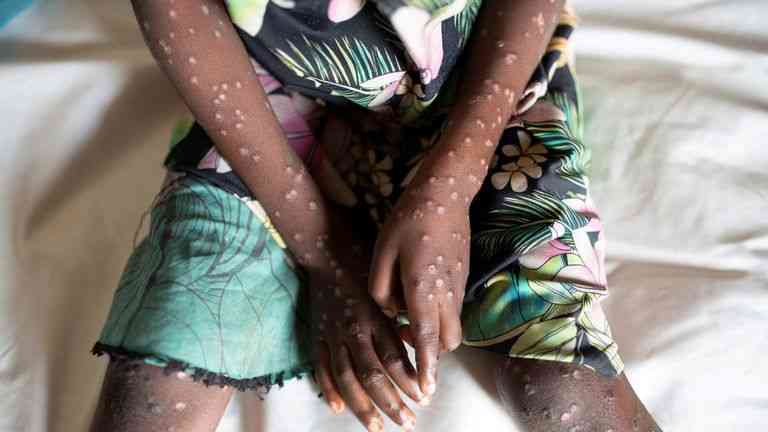
TODAY, we are on the verge of another serious outbreak in the form of Mpox, an old virus first discovered in Denmark in 1958 among a colony of monkeys meant for research.
The Democratic Republic of Congo (DRC) is the epicentre of infections, with 36 deaths having been reported on Wednesday this week, at least 1 320 newly-suspected cases, over 280 being confirmed cases.
All that country’s 26 districts are now reported to be having cases of Mpox, with the capital city, Kinshasa, having numerous cases as well.
On August 15, the World Health Organisation declared the spread of Mpox a Public Health Emergency of International Concern.
It was just four years ago when the world was thrown into the abyss by the emergence of the heinous COVID-19, which claimed the lives of millions of people.
Since 1980, no cases of naturally occurring smallpox have been recorded.
Mpox, was discovered in humans in 1970 in DRC and since then, the disease has been reported in many other Central and West African countries, which include Gabon, Liberia, Nigeria, Central Africa Republic and Cameroon.
This year alone, more than 22 000 cases of Mpox have been reported in Africa, 90% of which are in the DRC alone.
- In Full: Fifteenth post-cabinet press briefing, June 07, 2022
- Health talk: Mandatory wearing of masks can now be scrapped
- Zipra cries foul over vetting process
- Health talk: Let us remain vigilant about monkey pox
Keep Reading
At least 625 deaths have been reported so far from 13 countries.
DRC borders many countries which include Zambia, Angola, Central Africa Republic, Uganda, Sudan, Burundi and Rwanda.
Five of its neighbours have already recorded cases of Mpox and our concern is Zambia, which lies on the south of DRC.
Zimbabwe has many of its truck drivers travelling to or from DRC, many of whom pass through Zambia.
The emergence of a new strain of Mpox in 2023, Clade 1b, a fast and more stubborn strain which appears more prevalent through sexual networks, has alarmed everyone as the risk of quick spread increases.
Communicable diseases' epidemiological curves are difficult to understand hence it is prudent to be extra cautious especially when the natural history of the disease is not fully understood.
Many people want to know how Mpox is spread and it is wise to understand that animal-to-human transmission can occur from direct contact with blood, bodily fluids, cutaneous or mucosal lesions of infected animals.
Human-to-human transmission can result from close contact with respiratory secretions, bodily fluids, skin lesions of an infected person or recently contaminated objects.
People are infectious while they have symptoms usually between two and four weeks until the crusts that form a separate and fresh layer of skin emerges.
Clothing, bedding, towels or objects such as eating utensils that have been contaminated with the virus from contact with an infected person can also infect others.
Ulcers, lesions, sores in the mouth can also be infectious, meaning the virus can spread via saliva as well as mother-to-child transmission
Health workforce remains of great relevance both in transmission of, containment and mitigation against Mpox.
The health workers are at high risks of contracting Mpox and can act as agents of the spread of the virus if proper care is not taken.
With case fatality rate now reaching 4% in some areas, the disease can be quite frightening.
People with co-mobidities are at higher risk in terms of complications and these include those with immunosuppression, diabetics, the young, renal failure patients, heart failure patients, cancer patients to mention just a few.
The country should not relax when we are also facing the Mpox threat.
The virus’s history of rapid spread necessitates a proactive and co-ordinated international response.
Our country is still to report any cases of the Mpox but we should remain alert as a country in the face of the new health quagmire.
It is critical to underscore the need for enhanced health education, health promotion, case identification, testing, increased surveillance, contact tracing and prompt case management.
Personal hygiene is critical including hand-washing and sanitisation.
A well-informed public is more likely to recognise the signs and symptoms of Mpox in time, leading to prompt diagnosis and quicker medical attention.
During public health emergencies, many people die because of misinformation and disinformation.
Awareness is of great importance.
These can be products of conspiracy theories where people want to interpret in their own way.
Identify symptoms early so that we avert a disaster.
It is undeniable that vaccination remains key if we are to contain outbreaks, the same success achieved against smallpox in 1980 can be recorded with Mpox.











